Selected Critical Comments on Franke’s Works (ordered from oldest to most recent works, scrolling down)
“. . . these may very well be some of the most important pages written on Dante in the last decade, if not the last half century. As Franke undertakes his rigorous theoretical definition and exploration of the terms that will continue to preoccupy him throughout his book, the reader is privileged to follow, from sentence to sentence, the workings of an outstanding philosophical intellect applying itself, at the highest level, to a text that eminently deserves but rarely receives such treatment. The case for Dante’s simultaneous historicity and contemporaneity, for what Franke calls ‘the synergism between interpretation theory and Dante’s interpretive practice’ (p. 4), is made here with a force and a precision that raise it to the level of genuine eloquence. . . . The introduction—like the rest of the book—should be read and pondered by anyone who cares about Dante, or poetry, or history, or theology, or interpretation, or truth, or, quite simply (and in the philosophical dialect dear to Franke), our human being-in-the-world.”
—Steven Botterill (editor-in-chief of Dante Studies), Comparative Literature vol. 50, No. 2 (Spring, 1998), p. 179
“All this of course has been much debated by scholars, most interestingly I think by William Franke (1996), who weaves it into his brilliant Heideggerian reading of Dante as a whole.” — David M. Black, “Dante’s ‘Two Suns’: Reflections on the Psychological Sources of the Divine Comedy,” International Journal of Psychoanalysis 98:6, pp 1619-1717, December 2017, available online: http://www.tandfonline.com/[Article DOI].
“A decade ago, in Dante’s Interpretive Journey (Chicago: University of Chicago Press, 1996), William Franke observed, “Professional Dante criticism sometimes has a tendency to avoid or bracket the unanswerable, ultimate, philosophical, and theological questions that are nevertheless cause for perennial wonderment on the part of the readers of the poem…. That the project of the Commedia is to reveal theological truth may be said to be fairly widely accepted even among specialists…. Nevertheless, we as critics are content on the whole to leave Dante’s theological affirmations opaque, treating them as natural enough for someone of Dante’s time and temperament, but not seriously allowing that they could have any claim upon us in reading his poem today” (181-83). Franke is pointing to a paradox of contemporary Dante reception: the Comedy has ever more readers, ever fewer of whom are equipped to make any sense of, much less accept, the profound medieval and Catholic understanding of man and the world, and the claims to prophetic truth or revelation, that form the very motivation and substance of the poem. If we ignore all that–philosophy, theology, God, Catholic belief and morality, afterlife, providential view of history, salvation and damnation, the call to conversion–aren’t we missing the whole point of the poem, its challenge to us? BOOK REVIEWS 685 Those who seek to engage the Comedy’s challenge, its moral-existential claim on the reader, can either try to make Dante’s philosophical-theological understanding live again and matter for the modern reader (including Catholics), or else they can attempt to translate that challenge into terms more familiar or palatable to our own time, in particular into the language of psychology or of movements in contemporary philosophy. In The Metaphysics of Dante’s Comedy (New York: Oxford University Press, 2005), I pursued the first path; in Dante’s Interpretive Journey, William Franke pursued the second. Franke read the Comedy through the lens of the existential-ontological hermeneutic philosophy of Heidegger and Gadamer, to see how the text and the philosophy could illuminate each other. A decade later, Christine Baur’s book takes up precisely the same project. The essential principles, and the outlines of much of the analysis, were already laid out by Franke, a fact that Baur, despite her frequent citations from Franke, perhaps does not sufficiently acknowledge. Franke’s book is philosophically more penetrating than Baur’s, and it analyzes the hermeneutic philosophical method in relation to the Comedy with greater objectivity and critical sophistication. But Baur develops the outline of Franke’s analysis in much greater (sometimes repetitive) detail, and extends it to passages and questions not treated by Franke. Her book is carefully structured, with an almost Scholastic articulation of argument, and her analysis is lucid, precise, exhaustive, and often strikingly perceptive.”
— Christian Moevs, The Thomist: A Speculative Quarterly Review 72/4 (2008):684-688 (through comparison with Dante’s Hermeneutics of Salvation: Passages to Freedom in the “Divine Comedy.” By CHRISTINE O’CONNELL BAUR. Toronto: University of Toronto Press, 2007)
“These two volumes successfully realize a massive project: to propose and delineate a new field of discourse that provides a fresh approach to Western thought as a whole. In short, William Franke demonstrates the centrality of apophaticism, ‘what cannot be said,’ to the Western tradition, from Plato (and before) to Derrida (and beyond). . . . Franke’s work is nothing short of brilliant. . . . Franke shows incredible breadth of knowledge, critical acumen, and creative prowess throughout . . . . . [The] two volumes [are] essential reading for philosophers, theologians, literary scholars, intellectual historians, critical theorists—in short, anyone interested in an illuminating and vital perspective on just about any facet of Western arts and letters.”
“. . . One of the most important and original contributions to the discussion of apophasis in recent years. . . . Franke’s historical and disciplinary range, in light of his well-written and compelling essays, provides an illuminating insight into the pervasiveness of apophatic discourse. . . . Few others, maybe no others, provide the same clarity, coherence, and scope; few, maybe none, provide the same provocation to think further and more deeply, to think otherwise the tradition from which we come.”
“As an introduction to the phenomenon of apophatic discourse, Franke’s anthology is a great success. It often displays astounding breadth of knowledge and scholarship on the part of its editor. . . . This volume offers the only introductory anthology of negative theology that I know of, and it is superb.”
—Bruce Milem, The Heythrop Journal, 51, no. 1 (2010): 174-175
“The genius of Franke’s two-volume critical anthology on apophatic discourses is the work’s breadth and depth of engagement with the concept in variously distinct and even conflicting contexts.”
“The last and perhaps most commendable attribute of this volume for students in need of a reader like it is the remarkable quality of Franke’s critical introductions for each text. These introductions demonstrate a depth and range of insight available only through careful and thorough research. It may be enough to merely collect these various sources in one place, but Franke has gone much further than that with the critical preparations he provides the reader for each new text. Each work sampled in the anthology receives a combination of the following: explanation of the historical context for the text, biographical details about the author, brief examination of the critical issues related to interpreting the text, discussion of the history of reception for the text, and thematic connections for the unit and the anthology to the particular text under consideration. In many cases, Franke provides his own translation of the works that he adds to his collection, and his attention to detail in this translation effort is evident on nearly every page. These characteristics alone inspire great confidence in the editor’s careful consideration of and familiarity with the long, strange story of apophatic literature in Western culture. The additional benefit of introducing each work so carefully provides scholars both a convenient and reliable guide for apophatic texts previously unknown and also makes this collection an excellent resource to use with students in undergraduate and graduate courses. On What Cannot Be Said will be a leading resource for anyone studying apophasis and negative theology for many years to come.
Worley Review of On What Cannot Be Said_ Apophatic Discourses in Philos (click above to download complete review)
“Poetry and Apocalypse: Theological Disclosures of Poetic Language is a profound and radical study that holds many surprises . . . [W]e have long been convinced of the relevance of studies in religious thought, philosophy, and anthropology to literary scholarship. Poetry and Apocalypse gives evidence of the importance of literature and literary hermeneutics to religion, philosophy, and anthropology.”—Dorothy Z. Baker, Comparative Literature Studies
“The book’s stated objective is ‘a postmodern negative theology of poetic language’ (ix) that is both theoretical and practical, contributing to both literary theory and theology and promoting peace through radical openness to dialogue, and it is to Franke’s credit that the result is both challenging and accessible.” —Joel Harter, The Journal of Religion
” . . . a performed negative theology. At such wakes and festivals, it is the praxis of recursive conversations—Poetry and Apocalypse being an excellent example—that disclose, indirectly, possibilities of transcendent openness.” —Larry D. Bouchard, Religion and Literature
“Poetry and Apocalypse will appeal to critics who credit a Christian interpretation of Joyce’s texts in part because its premises are carefully argued and theoretically balanced.” —Lee A. Jacobus, James Joyce Quarterly
“The importance of Poetry and Apocalypse resides in the clarity of Franke’s views of the necessary relations between literature and theology as well as the authority that these views have by dint of being grounded in his deep knowledge of canonical sacred and secular literature over the centuries. I should also say that Franke is his own man; he does not represent a ‘school’ or even a fashion, and his book marks an original contribution to the growing field of religion and literature.” —Kevin Hart, Monash University and University of Notre Dame
“This is an ambitious book. It takes on big topics, difficult writers, and a range of discourses. Authors who venture into topics like ‘poetry and apocalypse’ are usually comfortable with big ideas and forays into theoretic discourse that shy away from concrete literary analysis. Among Franke’s virtues is his ability to do both in a prose that is graceful and accessible.” —Peter Hawkins, Boston University
“Franke’s theory of poetic language as negative theology is persuasive and helpful in illuminating the complex relationship between religion and literature.” —Joel Harter, The Journal of Religion
‘Written in elegant and astonishingly readable prose, William Franke’s volume gives a lucid portrait of a fundamental question that lies at the heart of Dante’s Divine Comedy and has resurfaced in contemporary French philosophical reflection: poetic theology as a radical, transgressive mode of knowledge. In mapping the ground of this fascinating debate, William Franke places Dante at the boundaries of thought and recovers the timeliness of his spiritual vision. This book is a must-read for historians of religion, Dante scholars, literary critics, and adepts of cultural studies.’ — Giuseppe Mazzotta, Yale University, USA
“Can language meaningfully point us to the divine? Is it possible for us to transcend our humanity to touch the mystery which surrounds it? How might the idolatrous projections of our ego be transgressed? These are just some of the questions provoked by William Franke’s scintillating book. By bringing Dante’s Paradiso and French Theory into mutually illuminating dialogue, Franke invites his readers to explore the outer limits of sense and meaning, and to consider seriously the theological implications of the unknowing at the heart of literary expression. His reflections will spark the interest not only of Dante scholars, theologians and literary theorists, but of anyone interested in probing the connections between literature and theology.” – Vittorio Montemaggi, University of Notre Dame, USA
“Overall, Franke’s argument is both balanced and nuanced; he presents Dante as neither reactionary nor revolutionary, but, rather, as devout transgressor. Franke skillfully incorporates other arguments about transgression, such as Giuseppe Mazzotta’s claim that Dante transgresses and transcends ethics in Paradiso to a world “of ludic play and aesthetic performance” (107). Franke also does an excellent job of distinguishing Dante’s thought from French philosophy while addressing the similarities between medieval apophaticism and French deconstructionism. He does not wish to turn Dante into a deconstructionist philosopher, nor does he attempt to transform deconstructionist philosophy into medieval theology. Rather, he puts them into fruitful conversation with each other.” –T. Niebuhr, Christianity & Literature 63 (September 2014): 533-536
“William Franke has brought the harvest of French theory (especially Blanchot, with some Bataille, Barthes, Foucault, Derrida, and, in an appendix, a good dose of Levinas) to bear upon Dante’s Paradiso, focusing on the notion of transgression. He ably traces the many senses in which Dante’s text, so apparently intent on affirming order, is in fact transgressive, and obsessed dualities, such as between the human and the divine, undone in a trasumanar. . . . Franke is wonderfully, persistently clear, as precise as one can be in elucidation of French thought. The exercise of reading those texts with and against the Paradiso illuminates both, as well as what is at stake for both literature and philosophy or theology.” – Christian Moevs, Religion & Literature 47/2 (Summer 2015): 166-68
“Franke’s reflections on the relationship between Dante and modern French theory are thought provoking and lead to many interpretative insights.His particular emphasis on the poetics of apophaticism,meanwhile,makes a distinctive contribution to the wider reappraisal of Dante’s theology within contemporary scholarship.” – George Corbett, Speculum 89/4 (2014) 1139-40
A Philosophy of the Unsayable – Reviews
“William Franke is an articulate spokesman for what cannot be said not only with regards to modern European poetry but also with respect to contemporary theology. A Philosophy of the Unsayable is essential reading for everyone working in religion and literature and in modern theology.” — Kevin Hart, Edwin B. Kyle Professor of Christian Studies, University of Virginia
“By now, it would seem that there could be no more to say about not-saying. Apophatic language and negative theology have been accused of meaninglessness, nihilism, and even ill-concealed ontologies. In this lovely and surprising book, William Franke not only deftly undoes these criticisms but shows that apophasis underlies and strangely grounds all language and thought, even of those very discourses that most vigorously reject it. A Philosophy of the Unsayable demonstrates with elegance that there is indeed more to say, and more that is both meaningful and important.” — Karmen MacKendrick, Professor of Philosophy (Joseph C. Georg Endowed Professorship of Philosophy, 2009-12), Le Moyne College
“William Franke is an eminent scholar in comparative literature, who is schooled in philosophy and religion. He is recognized as one of the most creative contemporary thinkers working at the double intersection of philosophy and literature and philosophy and theology. A Philosophy of the Unsayable shows an intellectual grasp of a dizzying array of discourses and sheds real light on all thinkers who are discussed.” — Cyril O’Regan, Huisking Professor of Theology, University of Notre Dame
“William Franke is a major voice in current discussions of “Religion and Literature.” One thing that makes him unusual, as well as highly valuable, is that unlike most people in the area he has a broad knowledge of philosophy, both ancient and modern; another unusual characteristic of this author is that his writing is firmly based in meticulous scholarship in several European languages. I have long been an admirer of his work, and I am pleased to say that the substantial typescript I have been given to read, A Philosophy of the Unsayable, has all the desirable qualities I have just indicated. There is one further quality that makes Professor Franke an author that Notre Dame University Press will want to retain: he writes a remarkably clear and engaging prose.”—(Senior scholar writing anonymously for UNDP)
************
“William Franke has emerged as our foremost purveyor of what cannot be said.. . .this is a remarkable text, and deserves close attention at every level. Like all important texts, it raises questions for further interrogation.”
– Andrew W. Hass, editor of Literature and Theology (Oxford University Press).
“Franke’s book is . . . a thoughtful, provoking and often helpful exploration of an intellectually and spiritually demanding discourse.” — George Pattison, Theology 111 (2): 144-46
“Ultimately, what Franke seems to be questing for in his “philosophy of the unsayable” is the possibility of a form of faithful and non-nihilistic pluralism. If all discourses, preeminently theological discourses, find their true orientation towards something that cannot be said, but something which nonetheless elicits a frequently prolix and often doxological linguistic saying, then all discourses have a hidden unity beyond their irreducible differences. That is not an immanently obtainable unity, but a unity in distension towards what cannot, by its very I’lature, be obtained. It renders language both chas- tened and noble: chastened by its limits, and ennobled by its endless quest. Likewise, the apophatic thinker-whether a French philosopher or a theolo- gian steeped in the knowledge of cliristian mysticism—is to Franke a “knight of faith” (p. 32s) who restlessly probes the possibilities of believing through an ardent ascesis of questioning, whether such a kniglit is more Galahad or Don Quixote will probably be for tlie reader to decide, what they will not be able to dispute is the erudition and audacity of Franke’s own quest.”
—Brett Gray, Anglican Theological Review 99.1 (2017): 145-148
“. . . a quite dazzling defense of poetry as central to human knowledge, by way of phenomenological considerations of the act of knowing. . . . At a moment in which the religious tradition and the secularization of culture seem to have nothing to say to each other–a catastrophic loss for both sides–Franke’s development of the high theme of prophecy in all its meanings — and the role of the prophetic in secularization, and of the secular in prophecy! — in the most classic Western works is sorely needed–I am tempted to say, is itself prophetic.” — Bainard Cowan, Professor of English, Cowan Chair in Literature, University of Dallas
“The bottom line is this: “The Revelation of Imagination” is a brilliant study of formative works that should never lose our attention. Indeed, the manuscript is itself ‘revelatory.”’ — Peter Hawkins, Professor of Religion and Literature, Yale Divinity School
“. . . the reader of Franke’s book comes away with a sense of the differences and connections among these works, but also a sense of the “wholeness” of the tradition so eloquently discussed in Franke’s conclusion. . . . It is a learned work, and belongs on a shelf that includes Auerbach’s Mimesis.” — Paul Contino, Blanche E. Seaver Professor of Humanities, Pepperdine University
Ever-increasing pressure on colleges and universities to demonstrate the marketabilityof their graduates in the business world is a source of anxiety for many of us in the humanities. We all know the importance of what we teach, even that the skills and knowledge we inculcate in our students are marketable, but we do not always find it easy to communicate the immediate value of the humanities to our culture. William Franke’s project in The Revelation of Imagination: From Homer and the Bible through Virgil and Augustine to Dante is to ‘‘focus on what is enduring and perennial rather than accommodated to the agenda of the moment,’’ but in so doing he also provides a powerful defense of the contemporary relevance of the ‘‘revelations’’ great literature can provide (xi). Rereading five classic texts that he describes as aspiring ‘‘to become the conscience and the consciousness of a whole civilization,’’ Franke demonstrates their power to articulate new truth for the immediate present of succeeding cultures.
Franke is an eminent scholar whose perhaps-best known works, including his 2007 anthology On What Cannot Be Said and his 2014 A Philosophy of the Unsayable, explore apophatic discourse. The Revelation of Imagination is every bit the strong scholarly work, replete with footnotes and references, one would expect. The extreme clarity and accessibility of the text, however, open it to a much wider audience than the scholarly academic community. Anyone interested in learning about the great texts Franke treats in the book will find it a wonderful reading guide. Each chapter could be read alone as an aid to understanding a specific text, but taken as a whole they offer a finely woven argument regarding the revelatory nature of great literature. While Franke’s approach is post-secular in that it is open to and encourages finding transcendent meaning in literature, this work is literary rather than religious and would be useful even to those who do not adhere to a faith tradition.
Rebecca Dark, Review of Revelation of Imagination in Christianity and Literature
“This is one of those rare and wonderful books that reflects a lifetime of learning and thinking. It is at once a powerful mediation upon five literary bulwarks of the Western tradition and a philosophical argument about the meaning of world-shaping literature. And, while the last fifty or so years have seen the institutional and disciplinary defeat of the idea of a Western canon and the kind of literary analysis of classic works that this book so glisteningly exemplifies, The Revelation of Imagination amply demonstrates why Homer, the writers of the Bible, Virgil, Augustine, and Dante have been invaluable and inexhaustible conduits for the revelations of the human imagination. There is not a page where William Franke’s ability to enter into the crafting and language of the work he is discussing does not
profoundly enrich one’s appreciation of the text. That he is able to take works and writers of whom so much has been written and yet make the reader feel how much more there is still to say and see, how inexhaustibly open these works are, is testimony to the mastery of his craft. His attention to stylistic detail, his ability to savour the intricate interweaving and balance of textual elements and to identify the semiotic ricochets and resonances of a text, to call upon the most brilliant and apposite insights of philosophers, theologians, and literary critics, to show the sheer power and grandeur of inventiveness and attentiveness to the human and divine conditions that elevate the works of these authors to a plane where they shaped their times and subsequently the human possibilities that followed in their wake, are all combined with a style that is at once devotional and enthusiastic, panoramic and nuanced, authoritative and humble.”
Wayne Cristaudo, “The Wisdom of the Western Canon,” Review of The Revelation of Imagination
“In a series of dazzling essays taking Dante as their starting point, William Franke finds the trace of religious meaning throughout different forms of modern poetry, whose gaps and discontinuities he claims point to the ineffable beyond language. The book will prove an immense provocation and stimulus to all those who thought they had sorted out the relation of theology to modern poetry.” —Jeremy Tambling, University of Manchester
“In twenty-five years of teaching a ‘great books’ curriculum, I have rarely read a study so finely attuned to the spiritual resonances of classic texts. I will be consulting William Franke’s Secular Scriptures for as long as I continue teaching and writing about the religious dimension of literature, and its enduring relevance to our ‘secular age.’” —Paul J. Contino, Pepperdine University
“In Secular Scriptures, William Franke rejects the received wisdom that sacred and secular are essentially opposed to one another. He does this by asking us to think about where these alleged oppositions in fact converge—in a venerable Western literary tradition. Surveying a broad spectrum of works written ‘in the wake of Dante,’ he argues that ‘self reflexivity,’ subjective human experience and reflection, has become for modern poets the locus of revelation, a form of scripture. Building on his extensive previous explorations of ineffability, ‘on what cannot be said,’ he uncovers the richness—both literary and philosophical —of inventive language that speaks in order to reveal ‘the spiritual mysteries of the letter,’ to gain access to what ultimately lies beyond the reach of words.” —Peter Hawkins, Yale Divinity School
“I read Secular Scriptures almost without putting the work down. Readers in fields from fin-de-siècle decadence to ‘post-postmodernism’ in poetry, especially those with interest in religion and literature studies, will be delighted by the way Dante is recast here to preface twentieth- and twenty-first-century developments. Franke’s way of thinking backwards from recent postsecular theory is beguiling and transformative; the movement forward in the final chapter, via Dante’s emerging again at the end as at the beginning, is really rather beautiful.” — Romana Huk, University of Notre Dame
“William Franke has written, in a luminous prose, an enthralling book about a pivotal issue in literary studies: the esthetics of visionary literature. The questions Franke raises—philosophy of language, the nature of mystical insights, their modes of representation, and the revelations of poetic knowledge—find in Dante, in the Romantic poets of Europe, and in the radical philosophical speculations of the twentieth century a fascinating articulation through which the reader can experience the depths of the high culture of the West.” —Giuseppe Mazzotta, Yale University
“William Franke is similarly concerned with the status of the materiality of the image. As part of his argument in Secular Scriptures: Modern Theological Poetics in the Wake of Dante, Franke argues that Milton’s religious commitments lead him to reclassify poetic imagery as “nonsacramental.” . . .his comments on Paradise Lost’s substitution of poetic evocativeness for poetic transcendence are key to his book’s thoughtful series of essays, which stretch all the way from Dante to W. B. Yeats.” —Katherine Eggert, SEL 57/1 (Winter 2017): 189-91
“Secular Scriptures is a quintessentially postsecular hymn to the sustained
revelatory power of apophatic literature.”
—Chad Schrock, Literature and Theology, Volume 32, Issue 1, 1 March 2018, Pages 124–126
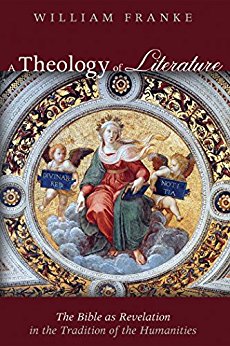
“Well known for his distinguished work on mysticism and the apophatic, in this new monograph William Franke offers a remarkable development in the field of literature and theology. Building on the foundations laid by earlier scholars in both biblical studies and literature, Franke examines different genres in both testaments, from myth, epic, the prophetic, the apocalyptic, and the gospel, to offer a biblical theology that is inherent within the text rather than imposed externally upon it. It is a brilliant example of what Paul Ricoeur once called thinking biblically, and will be a profoundly important book for anyone within the humanities as well as theologians, liturgists, and biblical critics.”
—David Jasper, University of Glasgow
“William Franke’s book demonstrates the variegated way in which the Bible provides ‘a model for humanities texts.’ Not only does he rightly seek to relate the reading of the Bible to other texts in the humanities, but also underlines the fundamental importance which the Bible has had in its contribution to hermeneutics. Historical contextuality, and the way which texts are a means of self-reflection, have been part and parcel of engagement with the Bible down the centuries and are all too easily ignored in modern biblical scholarship.”
—Christopher Rowland, University of Oxford
“This is a brilliant new book by one of the world’s most accomplished scholars in the area of literature and theology. Offering a lucid and compelling account of the nature of revelation, Franke reads a range of biblical texts in ways that are simultaneously thought-provoking, illuminating, readable, and constructive. A Theology of Literature is a wonderful achievement, and certainly worth reading.”
—Mark Knight, Lancaster University
“William Franke views the Bible with a fresh eye. He has the scholar’s learning, the theologian’s quest for revelation, and the poet’s understanding of where language can take us. He writes with extraordinary clarity about complex issues and texts; he gives a new sense of all that the literature of the Bible has in store.”
—Peter S. Hawkins, Yale Divinity School
“This remarkable book is written within a venerable tradition of literary reading of the Bible and of reading the Bible as literature. Its immediate predecessors in the past few decades include works by James L. Kugel, Robert Alter, Frank Kermode, Meir Sternberg and others, both Jewish and Christian. And yet at the same time it has a power and a directness that are entirely new and singular.”
“Franke, a professor of comparative literature with deep theological knowledge, well known for his work on mysticism and the apophatic, reminds us that words and literary form lie at the very heart of religious revelation, and, beginning with Genesis, he leads us through the major literary forms of the Hebrew Bible up to the New Testament and the gospels.”
“William Franke’s book, however, comes as a learned, lively and intelligent reminder that when we begin again in the study of the Bible it must be with a literary sensitivity and a theological imagination that recognizes in ever-fresh ways the literary and poetic heart of faith as it arises from the life of words and language. The poet Samuel Taylor Coleridge once wrote memorably of the “living educts of the Imagination” in Scriptures, and here, for our own time, we are reintroduced to them in this lucid and articulate book that finds theology to be inherent in the biblical text and its textures rather than something outside and imposed upon it. This is a profoundly important book for anyone in the humanities and for general readers, as well as theologians, liturgists and biblical critics.”
–David Jasper in Literature and Theology, September 2017
“We are still looking, however, for a balanced, unprejudiced and impartial way forward that does not subordinate literature to theology or vice versa. Franke goes to the heart of the issue here. Eschewing militant secularism on the one hand and religious fundamentalism on the other, this volume marks out a space where the literary and the theological interact and challenge one another on equal footing. The Bible is an exemplary text for illustrating this ‘theology of literature’.”
–Francesca Buglioni Knox, The Heythrop Journal LIX (2018), pp. 135-36
“Franke’s declared audience is, in fact, “more diversified … including confessional readerships beyond the walls of the academy” (ix). His manifesto, therefore, has the welcome goal of introducing to such an audience a more critical way of approaching the Bible that is still ultimately affirming of faith, allowing for a refreshed practice that connects the “confessional reader” both to the tradition and to his or her own evolving culture. . . . All said, this is quite an accomplishment.”
–Kevin Dunn, Journal of American Academy of Religion (2018), Reading Religion
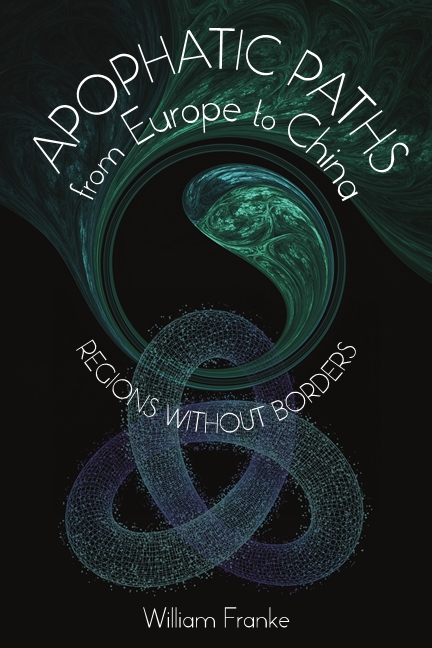
“…Franke has made a great contribution, perhaps as great as a paradigmatic shift, to the area of Western-Chinese comparative philosophical and theological study, especially regarding the topic of transcendence versus immanence. The promising comparative framework that he sets in the book incubates a great potential for scholars’ further exploration, and we therefore have good reason to wish for considerable growth of scholarship in this area.” — Journal of the American Academy of Religion
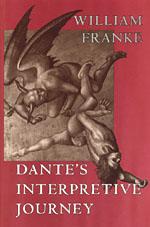
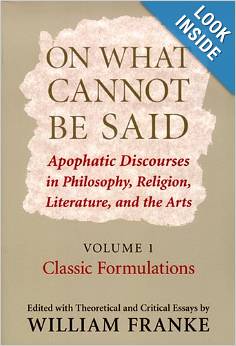
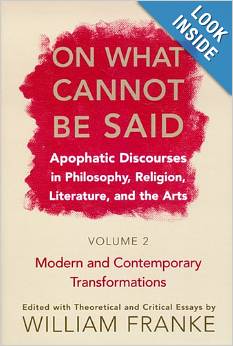
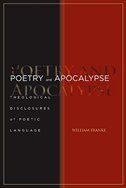

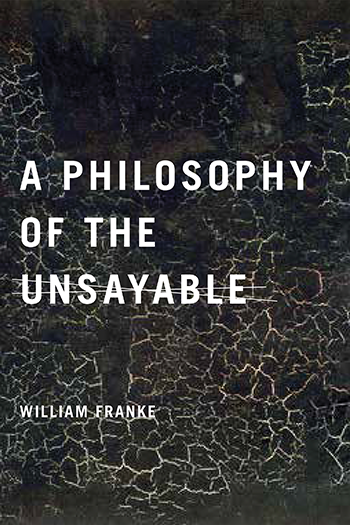
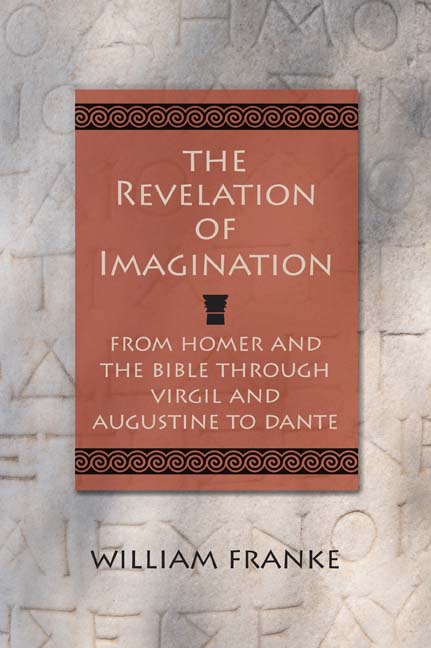
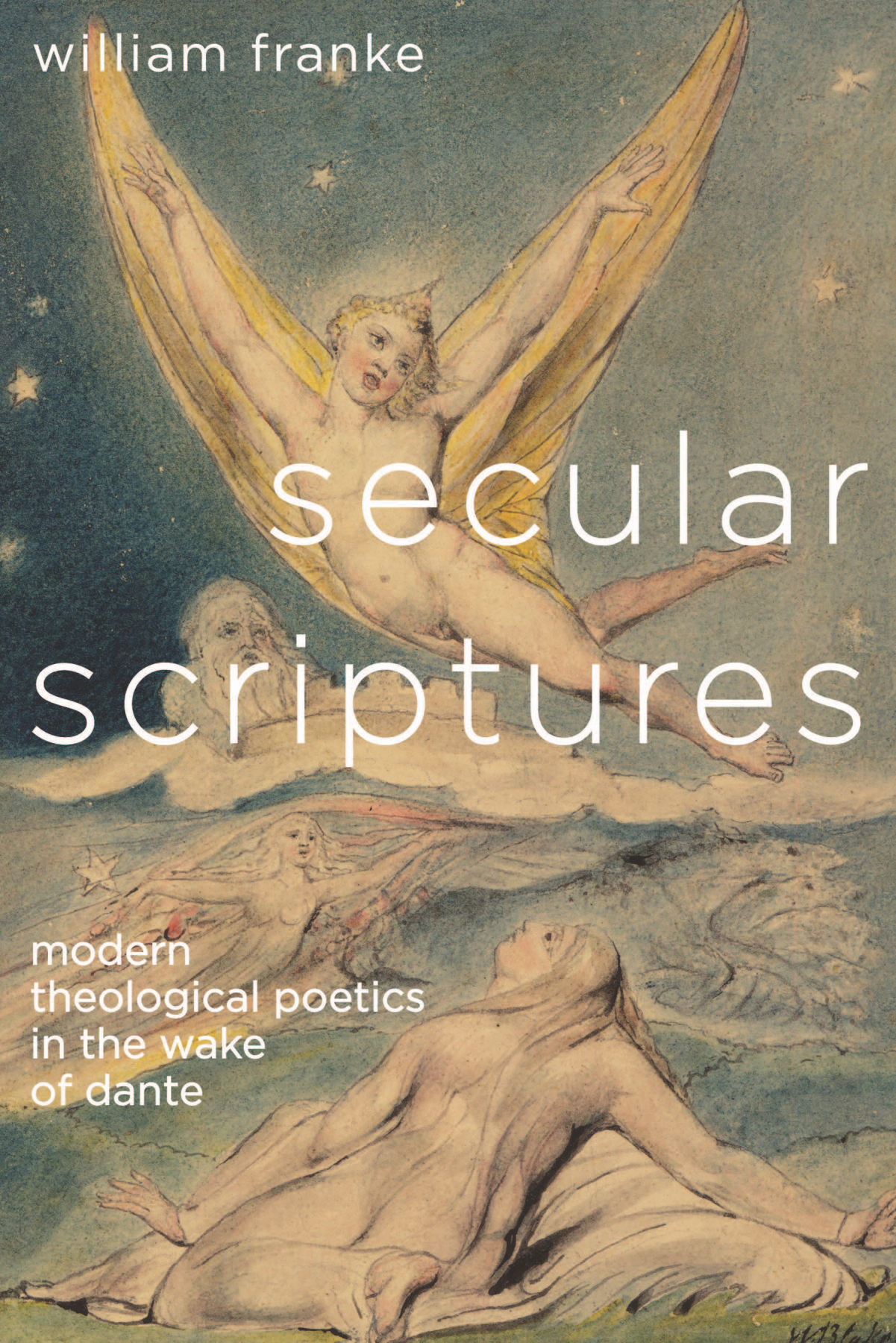
©2024 Vanderbilt University ·
Site Development: University Web Communications